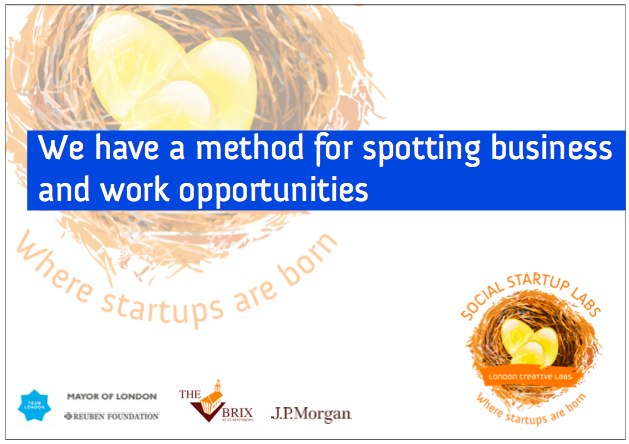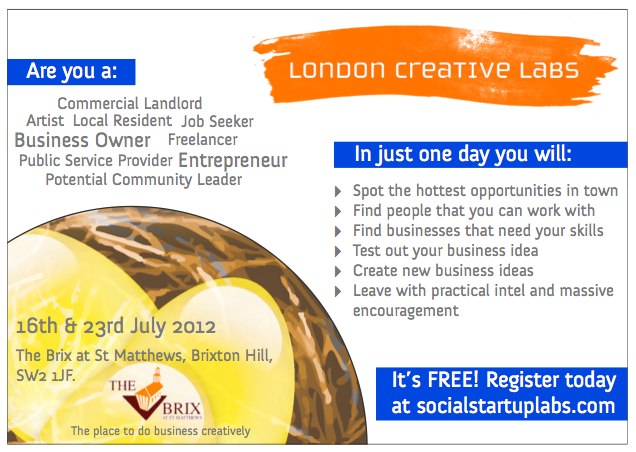Conversations
These are some of the conversations that Sofia Bustamante had with people around the time that London Creative Labs (LCL) was born.
With Dr Muhammad Yunus: strategic alignment
On the 29th June 2009, at a small dialogue that I facilitated which included Dr Muhammad Yunus, I described to him my basic idea idea of inviting the social entrepreneurship community to "jump" into the realm of Social Business. I wanted to do something in London.
His response was encouraging: "It sounds good. Go ahead with it and let us know how you get on. It is important that you work with the existing structures in London and find a way for it to be sustainable". When I got back from Dhaka, the idea formed more clearly into London Creative Labs.
With Mamading Ceesay: distributed intelligence and Incentives
Early in June, I had discovered in a book that contrary to popular belief, the 'brain' of a cell is not actually the nucleus. The intelligence is in the cell membrane, and lies in its sensitivity to external conditions and capacity to consequently activate different genes within the DNA which then control the cell's behaviour.
This reflected conversations I had had with Mamading on the intelligence of a network being at its edges; the importance of interfaces. He highlighted the word 'epigenetics'to me. I have had several conversations with Mamading about the case for Social Business. He pointed me just yesterday to this insightful article by Dawn Howley in The Guardian Newspaper.
Mamading has sent me so many links that I cannot keep up! I am hoping that he will suggest a way to store those links so they are open and available here. After reading "Creating A World Without Poverty" he noticed how differently the incentives were for Grameen Bank managers than for managers in traditional banks. The latter are rewarded solely on their financial performance. Grameen Bank managers are rewarded on non-financial as well as financial incentives.
Since the mission drift at Grameen has been nil, this is worthy of note. How does this apply to London Creative Labs? The network must serve the members. If the network were a cell, the network weavers would represent the membrane. If this is where the intelligence lies, it makes complete sense therefore to make serving the members a high priority.
This also makes ethical sense too. Hence for those working on behalf of the network, we must get the incentives right so that it is easy for them to be motivated to truly be of service; taking as a beacon example that of Grameen.
With Nick Jankel-Elliot: disruptive social innovation
We discussed the need to find smart ways of addressing the funding gap for ideas that break the mould. Nick went further too with making the case for Social Business; he outlined opportunities and left me with the sense that this is very important work and if carried out in innovative ways, could be ground-breaking. (See the blog post)
With Jonathan Robinson: practical steps
Jonathan gave me the thumbs-up on the general approach, and in particular the notion of trying things out in the form of a pilot. He said he had seen approaches that start out grander and go wrong and thus the pilot approach makes sense. We spoke about intentional interventions and social business that scales and the need for this kind of work around the different networks of social entrepreneurship.


